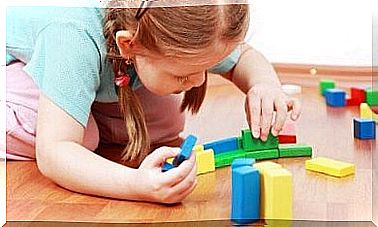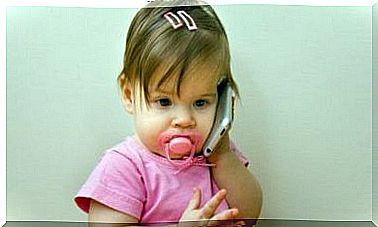How Does A Baby Experience Birth?

The information we read in magazines, books and articles on the Internet specializing in childbirth only talks about how a mother experiences the birth. But how does a baby experience birth?
Many people think that mothers go through an intense pain during childbirth, while others think that “it is not that bad”. Pain is very subjective and everyone experiences it differently during childbirth. We need to keep in mind that we cannot compare one person to another.
It may be the following as we are used to thinking about how the mother experiences this moment. If it gets complicated or not, if they will feel a lot of pain or not. How they should breathe, what positions they should have to relieve the pain the most, etc.
But we repeat ourselves: What about the baby? How does a baby experience birth?
It is very difficult to know for sure. Of course, babies will not be able to tell us about it. However, more and more professionals (doctors, pediatricians and psychologists) are studying this process from the child’s point of view.
We will try to explain the birth process from the baby’s perspective in this article – this way we get an idea of how a baby experiences the birth.
Discover how a baby experiences birth from the first contractions
The baby knows when it is ready to be born. Through a stream of hormones, the baby indicates to its mother that it is ready. Then contractions are triggered and help bring the baby into the world.
The baby begins to prepare for this moment before birth. Their suprarenal glands begin to secrete adrenaline much faster than any other moment in their lives. This prepares them to go through the stressful moment that awaits.
Some specialists claim that the mother and baby are connected via the placenta. Thanks to this connection, the little one can know his emotional state. That is why it is important to stay calm.

When the baby begins to feel the first contractions, it realizes that something is happening. The uterus contracts and pushes them towards the exit. They feel pressured.
How do they feel when they come through the birth canal?
When they come through the birth canal, they may feel a little uncomfortable. This discomfort can increase if it is a complicated birth.
The baby produces a large amount of endorphins during birth, which allows them to have less pain and feel a certain well-being.
It is believed that while the baby is feeling the massage, they press with their head against the cervix to help them open the birth canal.
During the first pressure that the mother makes, the baby feels an intense pressure and not the intense pain that the mother experiences.
What are the baby’s natural movements?
The child naturally performs a series of movements: it falls, bends its head, makes internal rotations, head extension, external rotations and final expulsion.
Although this may seem painful and uncomfortable, the natural birth process is still less traumatic for the baby.
This is more or less how a baby experiences birth. Although it seems very traumatic, it is a worse experience for the mother. Strange, right?
What does the baby feel when it finally comes out into the world?
When the baby is born, the umbilical cord is cut and the baby’s lungs begin to work. All the pressure they experience during the descent helps expel all the fluid they had in their lungs.

While inside their mother, the baby was used to a temperature of 36 degrees. When they are outside, the temperature is lower. That is why we need to act quickly.
It is best to cover them with a small blanket, and lay them over the mother’s warm skin. This prevents them from feeling cold and getting hypothermia.
This contact with the mother is very important for developing the bond between mother and child. It also facilitates breastfeeding for mothers who are now going for it.
So now you have an idea of how a baby experiences birth. We always receive information about how mothers experience the birth. But sometimes we can also find out how the baby is feeling.









